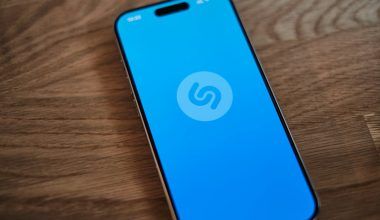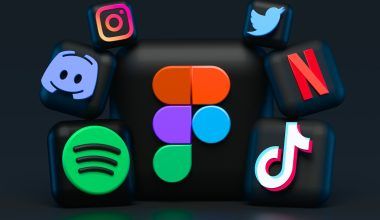In today’s music industry, independent artists have more tools than ever to share their music with the world. The rise of digital platforms has completely transformed the way music is discovered, distributed, and consumed. If you’re an independent artist, knowing how to share your music on all digital stores can open up incredible opportunities for exposure and revenue.
Gone are the days when artists relied solely on record labels to get their songs on store shelves. Now, with the right approach, you can distribute your music globally with just a few clicks. Let’s dive into how you can effectively share your music on all digital stores and what steps you can take to make the process seamless.
The digital revolution has made music accessible to a global audience. As an independent artist, you can’t afford to miss out on this opportunity. By sharing your music on platforms like Spotify, Apple Music, Amazon Music, and others, you ensure your work reaches a wider audience.
Digital stores give you visibility and provide your listeners with the convenience to stream or download your tracks. These platforms also offer detailed analytics, allowing you to understand your audience better. Plus, let’s not forget about royalties – each stream or purchase adds up and contributes to your revenue.
1. Create High-Quality Music Your music is your product, and it needs to be top-notch. Invest time in songwriting, recording, mixing, and mastering. High-quality tracks have a better chance of standing out in a crowded market. If needed, work with professional producers or sound engineers to polish your songs.
2. Choose a Digital Distributor Digital distributors are your gateway to sharing music on multiple platforms. Companies like DistroKid, TuneCore, and CD Baby help you upload your songs and distribute them to digital stores worldwide. Research these platforms, compare their pricing and features, and pick the one that suits your needs.
3. Register Your Music Rights Before uploading, ensure your music rights are protected. Register your tracks with a Performing Rights Organization (PRO) to collect royalties. Additionally, secure an ISRC code for each song – this acts as a unique identifier for your music and is essential for tracking plays and royalties.
4. Prepare Your Artwork and Metadata Digital stores require specific details about your music, such as the song title, artist name, and release date. Create eye-catching cover art that reflects your brand and music style. Double-check the metadata to ensure everything is accurate, as errors can delay your release.
5. Set a Release Date Planning your release date is crucial for building anticipation. Choose a date that gives you enough time to promote your music. Many independent artists opt for a Friday release, as it aligns with global music industry standards.
6. Upload Your Music to the Distributor Once you’ve chosen a distributor, follow their instructions to upload your music. Ensure all files meet the required specifications. After submission, your distributor will send your music to the selected digital stores.
7. Promote Your Music Before the Release Creating buzz around your release can significantly impact its success. Use social media, email newsletters, and personal connections to spread the word. Share teasers, behind-the-scenes content, or snippets of your song to keep your audience engaged.
8. Monitor Your Release on Digital Stores After your release goes live, check all platforms to ensure your music appears correctly. Verify that your artist name, album art, and track details are accurate. If you notice any issues, contact your distributor immediately.
Benefits of Sharing Your Music on Digital Stores
1. Global Reach Digital stores make your music accessible to listeners worldwide. This level of exposure can help you gain fans in different countries, opening up new opportunities for growth.
2. Revenue Opportunities From streaming royalties to downloads, digital stores offer multiple ways to earn money. The more platforms your music is available on, the higher your earning potential.
3. Audience Insights Platforms like Spotify for Artists and Apple Music for Artists provide valuable analytics about your listeners. These insights can help you tailor your marketing strategies and connect better with your audience.
4. Professional Credibility Having your music on major digital stores enhances your reputation as an artist. It shows that you take your craft seriously and makes you more appealing to potential collaborators and fans.
Challenges and How to Overcome Them
While the process of sharing music on digital stores is straightforward, it comes with challenges. For example, competition is fierce, and standing out can be difficult. To overcome this, focus on building a unique brand and engaging directly with your audience.
Additionally, managing multiple platforms can be overwhelming. Use tools that centralize your analytics and social media management to streamline your efforts. Consistency is key, so keep releasing music and maintaining an active online presence.
Marketing Tips for Independent Artists
- Leverage Social Media: Platforms like Instagram, TikTok, and Twitter are great for promoting your music. Share regular updates, interact with fans, and use trending hashtags to increase visibility.
- Collaborate with Other Artists: Collaborations can introduce your music to a new audience. Work with artists whose style complements yours to create fresh and exciting content.
- Utilize Playlists: Getting your music on curated playlists can boost your streams significantly. Reach out to playlist curators or use your distributor’s playlist submission tools.
- Engage with Fans: Respond to comments, host live sessions, and involve your fans in your creative process. Building a loyal fan base takes effort but is worth it in the long run.
The Importance of Consistency
Sharing your music on digital stores is not a one-time effort. To sustain your career as an independent artist, you need to be consistent. Regular releases keep your audience engaged and help you stay relevant in the ever-changing music industry.
Conclusion
As an independent artist, learning how to share your music on all digital stores can be a game-changer. It opens doors to new audiences, revenue streams, and opportunities for growth. By following the steps outlined above and staying consistent with your efforts, you can make a mark in the music industry.
So, start today. Share your music on all digital stores, connect with listeners around the globe, and take your independent music career to new heights.
For further reading, explore these related articles:
- How to Monetize Your Song on Spotify as an Independent Artist
- Monetize Your Song on Spotify Without a Label: A Step-by-Step Guide
- Monetize Your Song on Spotify with No Upfront Fees
For additional resources on music marketing and distribution, visit DMT RECORDS PRIVATE LIMITED.






